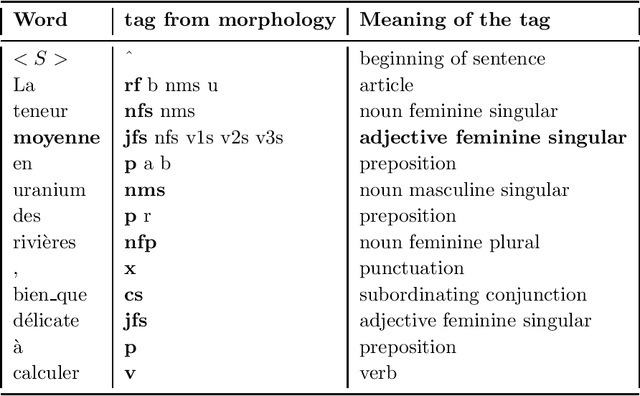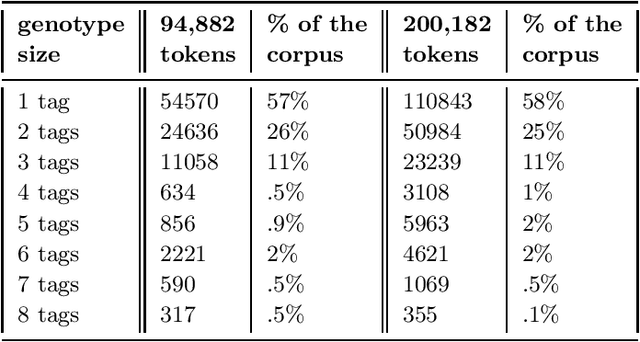Tagging French Without Lexical Probabilities -- Combining Linguistic Knowledge And Statistical Learning
Paper and Code
Oct 10, 1997



This paper explores morpho-syntactic ambiguities for French to develop a strategy for part-of-speech disambiguation that a) reflects the complexity of French as an inflected language, b) optimizes the estimation of probabilities, c) allows the user flexibility in choosing a tagset. The problem in extracting lexical probabilities from a limited training corpus is that the statistical model may not necessarily represent the use of a particular word in a particular context. In a highly morphologically inflected language, this argument is particularly serious since a word can be tagged with a large number of parts of speech. Due to the lack of sufficient training data, we argue against estimating lexical probabilities to disambiguate parts of speech in unrestricted texts. Instead, we use the strength of contextual probabilities along with a feature we call ``genotype'', a set of tags associated with a word. Using this knowledge, we have built a part-of-speech tagger that combines linguistic and statistical approaches: contextual information is disambiguated by linguistic rules and n-gram probabilities on parts of speech only are estimated in order to disambiguate the remaining ambiguous tags.
 Add to Chrome
Add to Chrome Add to Firefox
Add to Firefox Add to Edge
Add to Edge